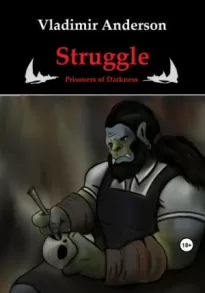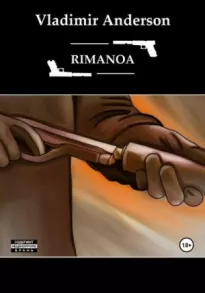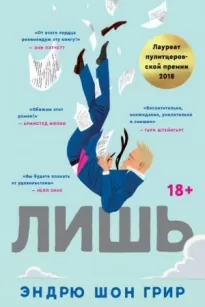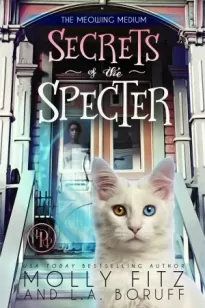The Librarian
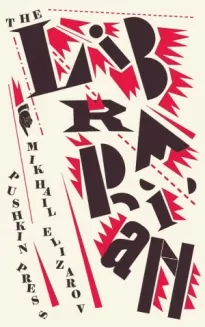
- Автор: Михаил Елизаров
- Жанр: Современная проза / Социальная фантастика
- Дата выхода: 2015
Читать книгу "The Librarian"
THE RETURN
AT FIRST I SQUEAMISHLY wiped the metal corner of the casket on the grass for a long time. My former terror had disappeared and in its place a frozen, unnatural calm, verging on extreme fatigue, had swept over me.
The heavy, pine-tar smell of Vishnevsky ointment hung over the battlefield—Marat Andreyevich and Tanya were rendering first aid to the wounded.
Margarita Tikhonovna’s crushed eye was carefully washed and the fragments of glass were extracted from her eyebrow, but she spoke to me in a spirited voice: “Alexei, I’m proud of you, you’re a genuine hero!” The blood, mingling with peroxide, bubbled on her cheek. “How can you not believe in higher justice now? The fact that you were the one to crush Marchenko is a sign. I’m glad that I was not mistaken!” And these words settled in my head in a cold, ornate pattern, like hoar frost.
Sukharev’s shattered hand was bandaged up with parquet blocks from the dead Pal Palych’s armour. During this procedure Sasha kept exclaiming: “I don’t feel any pain at all.” But it seemed to me that he was simply in a state of shock.
It is true, though, that I didn’t hear a single groan or any of the sounds associated with torment of the flesh. Marat Stepanovich merely commented that you could take out an appendix under the influence of the Book of Endurance and carried on hastily applying stitches.
Timofei Stepanovich treated his comrades’ shallow cuts with iodine; Nikolai Tarasovich Ievlev gloomily sucked the blood out of his slashed arm and applied plantain leaves.
The Vozglyakov sisters, Svetlana and Veronika, leaned down over their mother’s body without a single tear; the eldest, Anna, was sewing up a deep, ragged wound in Garshenin’s shoulder with a stony expression on her face, and a Kolontaysk fighter was waiting his turn nearby, pressing a rag to his bleeding wound.
Four observers came towards us, including the deformed Kovrov. He limped on both legs, but walked without the help of crutches. A conversation was held with Margarita Tikhonovna. The fresh white bandage on her eye was already soaked with blood on the inside and her voice trembled slightly, but it was full of dignity. From Kovrov’s sparse words I understood that our debt to the Gorelov reading room had been annulled.
Then the observer started talking about the disposal of the bodies. The essence of the procedure, as Denis explained to me later, was as follows. The victors had the right to request an imitation of any everyday death for their dead—a road accident, an accident at a building site, a fire, suicide, but only such that it would not arouse the suspicion of doctors and the militia. This privilege provided an opportunity to give the fallen normal funerals.
The bodies from the defeated side were supposed either to disappear completely or to lie until they totally decomposed, and lost all the terrible marks of battle. Then, at the request of their nearest and dearest—if such people existed in the world of Gromov—the remains could be discovered by the official world, following a tip-off. Until that time the readers were simply considered to have gone missing.
Shulga’s library accepted all the bothersome responsibilities involved in the disposal—not, of course, as a free service, but in exchange for the Gorelov reading room’s Book.
“Well then, congratulations once again on your victory,” said Kovrov.
“The old school’s the best, Timur Gennadyevich,” Timofei Stepanovich said sadly, drawing himself erect. “We don’t have many novices, we pretty much go all the way back to the Battle of Neverbino.”
“Yes, Marchenko was inexperienced. He didn’t take into account how dangerous it was to go up against you,” Kovrov agreed. “You fight seriously…” he said, yawning, so that his jaw crunched. “Now, about this ambush of the purported killers of the librarian Vyazintsev and the missing reader Shapiro… Depending on the consequences, the council will reach a separate decision and then determine the letter of the penalty. I don’t think that will be soon. Carry on with your own business, you’ll be informed.”
Kovrov limped away majestically. But after a few steps he turned back, met my gaze, wagged his finger at me humorously and declared:
“Don’t run away any more!”
Naturally, I didn’t like this gesture and his derisive tone, but the ultimate meaning of it all only hit me several hours later, on the way home in our RAF.
My memory of events is blurred, as if I observed them through a polythene bag. The observers carried away our dead comrades. We ourselves loaded the stretcher cases into the bus—the others walked to it themselves—and took them to various hospitals, providing them with the cover stories needed to account for all these breaks, cuts, contusions, broken noses and lost teeth.
One of Burkin’s volunteers, one Kolontayskite and Grisha Vyrin went straight onto the operating table. The first two had suffered severe craniocerebral traumas and Vyrin had a serious spinal injury. Lutsis had apparently escaped with only a minor concussion. Sukharev was left in the same traumatological department with a rather complicated break of the wrist, together with Anna Vozglyakova, who had a crack in her collarbone.
Margarita Tikhonovna categorically refused to see any doctors, declaring that her injury might look bad, but it was actually trivial. It was impossible to argue with her.
I asked how we could inform the families of Pal Palych, Larionov and Provotorov about the death of their dear ones. Margarita Tikhonovna’s reply shed some light on the membership of the reading rooms, in which individuals with families were the exception rather than the rule. Pal Palych and Larionov had lived as solitary bachelors, Provotorov grown up without any parents and had been raised by his grandmother. It turned out that there was no one to grieve for the dead apart from their fellow readers.
The Kolontaysk comrades prepared to go back home, and we moved from the bus into our RAF, after thanking them once again for their help. Margarita Tikhonovna spoke, and we all nodded in unison. Their leader replied morosely: “One good turn deserves another.”
The expression on Veronika and Svetlana’s faces was calm, I would even say exalted. I thought of offering them words of consolation, but I couldn’t find the right ones. The Vozglyakov sisters said goodbye and drove off on the motorcycle after the Kolontayskites.
Big-nosed Garshenin looked at the stumps of his fresh plaster casts, repeating over and over again: “I’ll be all healed up in no time…”
He was temporarily installed in Margarita Tikhonovna’s apartment. Then we drove Ievlev and Kruchina home, and the remaining six of us went to my place.
The same conversation continued. Marat Andreyevich declared:
“It could well be that we took out two or three of Shulga’s aces.”
“Precisely!” Timofei Stepanovich agreed. “I came across some really stubborn lads, and they fought stoutly. For sure Kovrov stopped the satisfaction because only his fighters were left.”
“And that means only one thing,” Marat Andreyevich concluded. “We’ve earned ourselves some serious enemies…”
I was concerned that the Shironinites would regard me as indirectly responsible for Vyrin’s injury. Margarita Tikhonovna’s passionate words made it clear how greatly mistaken I was: “Alexei, don’t even think about that! How could you ever get such an idea into your head?”
They showered me with a chorus of praise for a long time, although I think they all realized that my “heroic feat” was not the result of courage, but a fluke.
“I was so frightened for you,” Margarita Tikhonovna said agitatedly. “When I saw Marchenko break through and run at you… My heart sank, I couldn’t have borne it if anything had happened to you!”
“Ah, come off it!” Ogloblin responded. “Our Alexei’s a hero! Just look at the way he clouted him with the Book!”
“Yes, he’s got real spirit,” Tanya chimed in.
“It’s like I told you—blood’s thicker than water!” Timofei Stepanovich exclaimed joyfully.
“I’m glad things turned out that way and you didn’t lose your head,” said Marat Andreyevich, nodding.
Then the rapture faded and we drove on in silence. An overcast Monday was beginning, fine rain was sprinkling onto the windscreen, and the squeaking wipers smeared the drops like twin metronomes.
And that was when I remembered the observer Kovrov’s finger, as inexorable as a pendulum, in a completely different light. Overwhelmed by sudden despair, I realized that rhythmically swaying finger was the most terrible part of everything that had happened to me in the last few days. It was the beginning of the new rhythm of a different world, and all the indications were that escape from that world was only possible to the world beyond, and only through an extremely painful doorway. In one night I had been transformed from a witness into a fully-fledged accomplice in a massacre. I had been bound by blood. And in time there would be a reckoning for it. “There’s nowhere you can run to…” That was the warning, that was what the moving finger pointed to…
Behind me, Tanya Miroshnikova suddenly started crying. Timofei Stepanovich blew his nose loudly and Fyodor Ogloblin, who had lost his friend and “reverse namesake” Larionov, heaved a sigh. Margarita Tikhonovna furtively raised her handkerchief to her single eye.
Marat Andreyevich rubbed his temples with the palms of his hands, making his hair stand on end.
“The effect of the Book of Endurance has worn off now,” he explained with a bitter smile. “The live human emotions have begun. There’s nothing to be done. Now we’ll grieve…”
Thank God no one guessed that I was mourning for myself, not the fallen.

